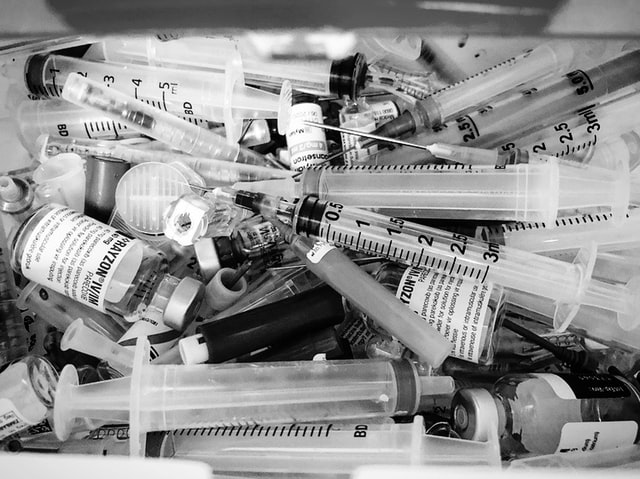The Brussels-Capital Region will build a large integrated "risk reduction space" for drug users – also called fixing rooms – in the canal neighbourhood, right opposite Tour and Taxis, by 2026.
The new integrated centre for drug users will have various functions, and allow people to use their drugs in a risk-reducing way, but also stay there for short periods. Various forms of counselling will also be offered.
The Capital Region, the municipality of Molenbeek-Saint-Jean and the City of Brussels presented the project, which will take up roughly 5,000 square metres in total, at a joint press conference on Tuesday.
"The integrated centre for vulnerable drug users is a comprehensive regional project that responds to the contemporary challenges of an evolving society: health, poverty and the improvement of spaces and public order," said Minister-President Rudi Vervoort.
In the project, all actors of the prevention and security chain - police, community guards, justice, street educators - participate in a coordinated way to bring a real renewal of social cohesion to the neighbourhood.
"It offers the hope of better welfare for vulnerable groups of the population and prospects for the neighbourhood, by integrating the ambitions and objectives of the Brussels-Capital Region, both from an architectural point of view and in terms of social cohesion," Vervoort added.
Related News
- €1.8 million for ‘risk reduction space’ in Brussels for people to use drugs
- Brussels will open first 'risk reduction space' for drug users
Of the 5,000 m² the project will take up, 1,000 m² are reserved for the Port of Brussels. The other 4,000 m² are reserved for people whose lives have been taken over by legal or illegal drugs.
The Brussels architectural firms Bogdan & Van Broeck and BC Architects have been awarded the contract.
For the new building on the canal, the firms aim for a "warm and welcoming" architecture with a homely atmosphere, a porch, a communal garden and a view of the canal, as the building is supposed to be "a refuge for one of the weakest groups in society."
"In addition to Gate, the risk reduction treatment centre that will open its doors in the centre of Brussels at the end of the year, this integrated centre will take on a complementary role in the care pathway as the engine of an innovative, dignified and inclusive policy towards the addiction problem," said Brussels City mayor Philippe Close.
Ensuring safety of all citizens
As drug use in public spaces creates a nuisance and heightens the sense of insecurity that exists among residents, it is in the interest of social cohesion "we must act for the good of all," he said.
"Our intention to provide the most disadvantaged people with universal access to public health is perfectly in line with our efforts to ensure the safety of all citizens," Close added.
Additionally, the non-profit organisation Transit also provides a total of 38 beds, so those who need it can stay one or more nights in the centre, depending on availability.
"However, night care is not the main task of the centre, but should be seen as an additional element of addiction treatment," the organisation said, adding that it also maintains its beds for people with an addiction in the Rue Stephenson in Schaerbeek.
The integrated centre will "provide an answer to a real need in the city," says Transit, which will be responsible for the daily management of the centre.
General Manager Muriel Goessens has noticed an increase in the number of people using Transit's services, noting that there is insufficient space to meet the needs of this audience.
"By providing services adapted to every need and situation, this new centre will provide universal access to healthcare according to a step-by-step logic with the lowest possible threshold," she added.
The Region will contribute financially by awarding a subsidy of €12.3 million for the integrated centre and for the adaptation works for the Port of Brussels.

